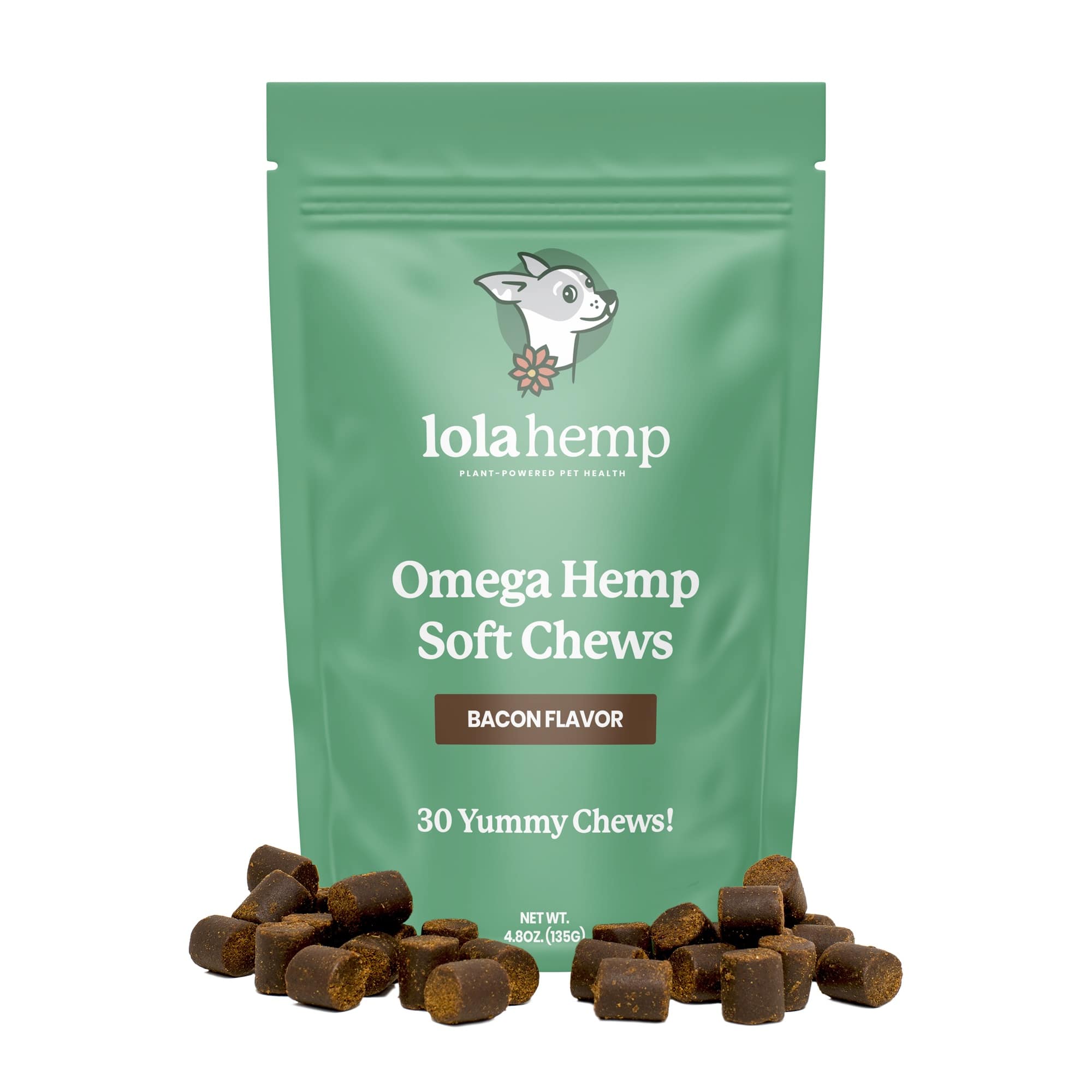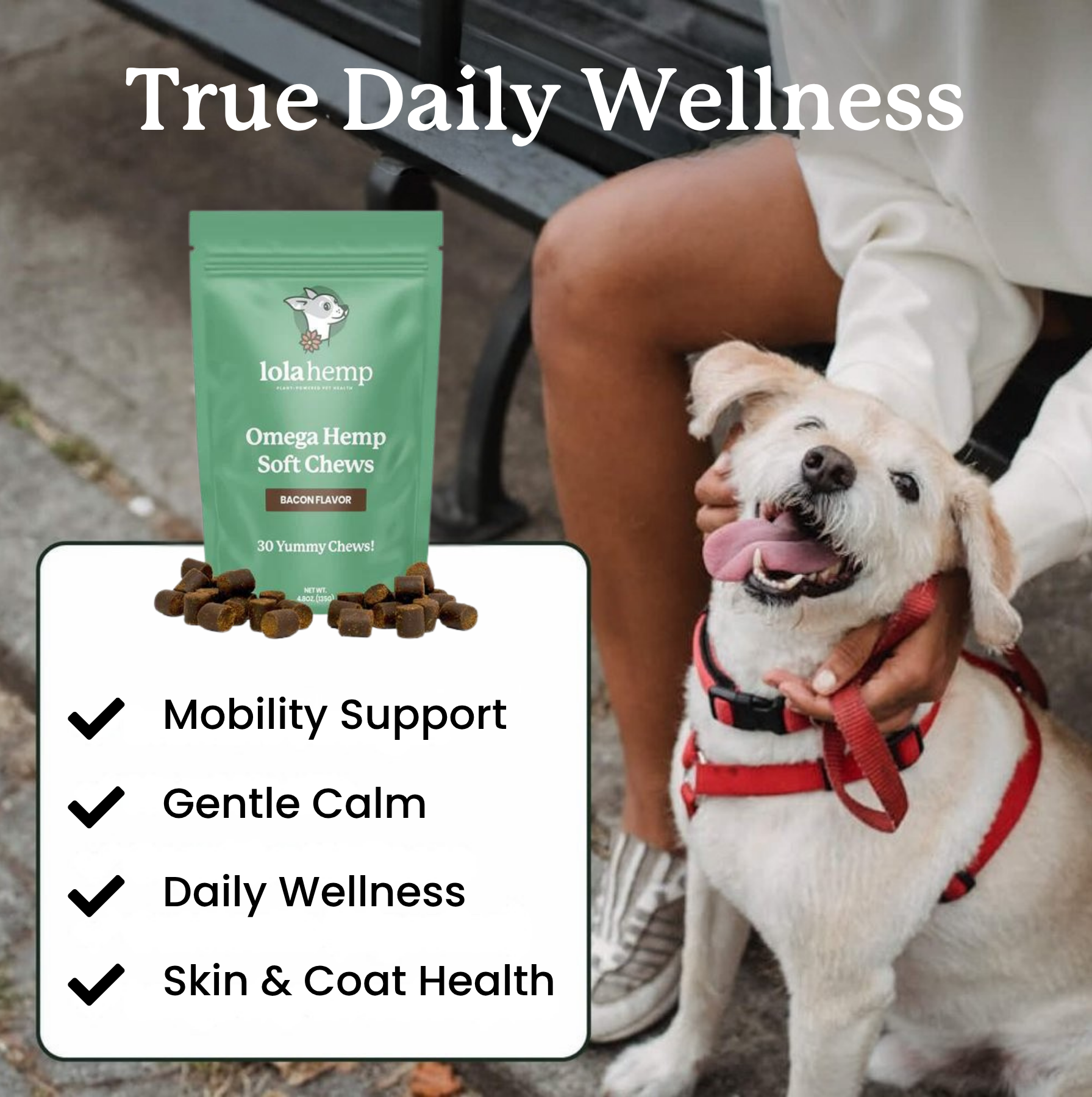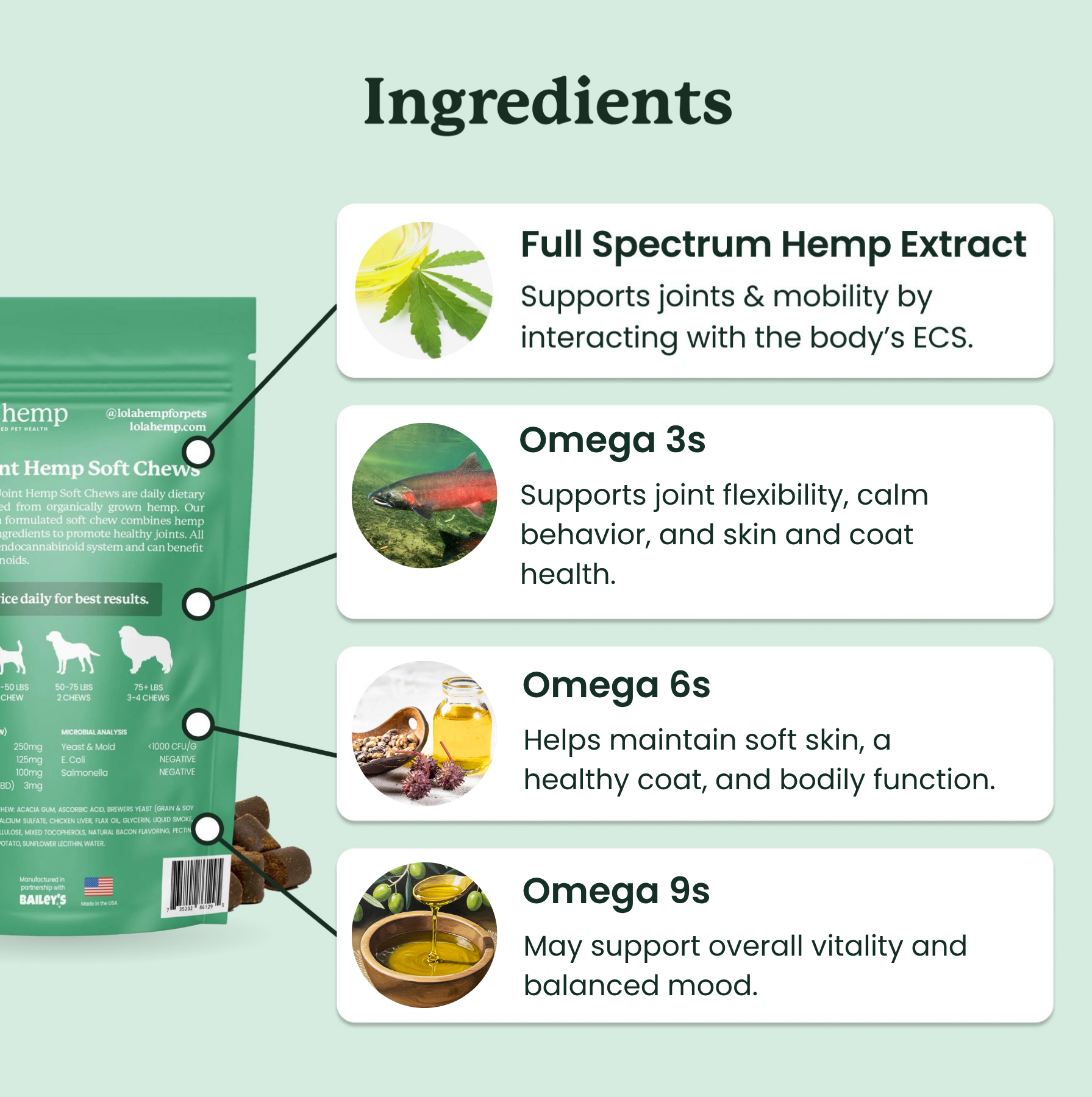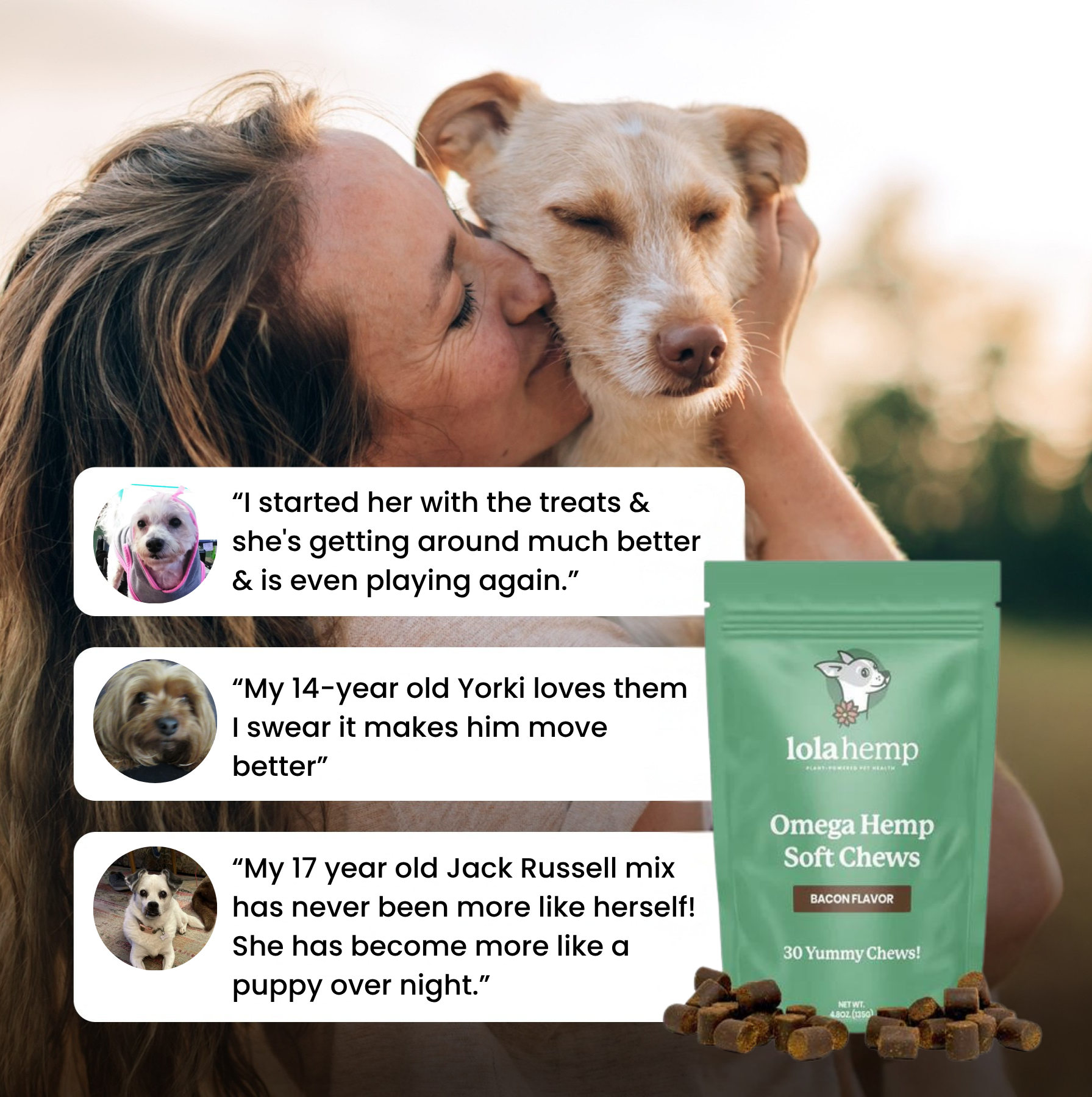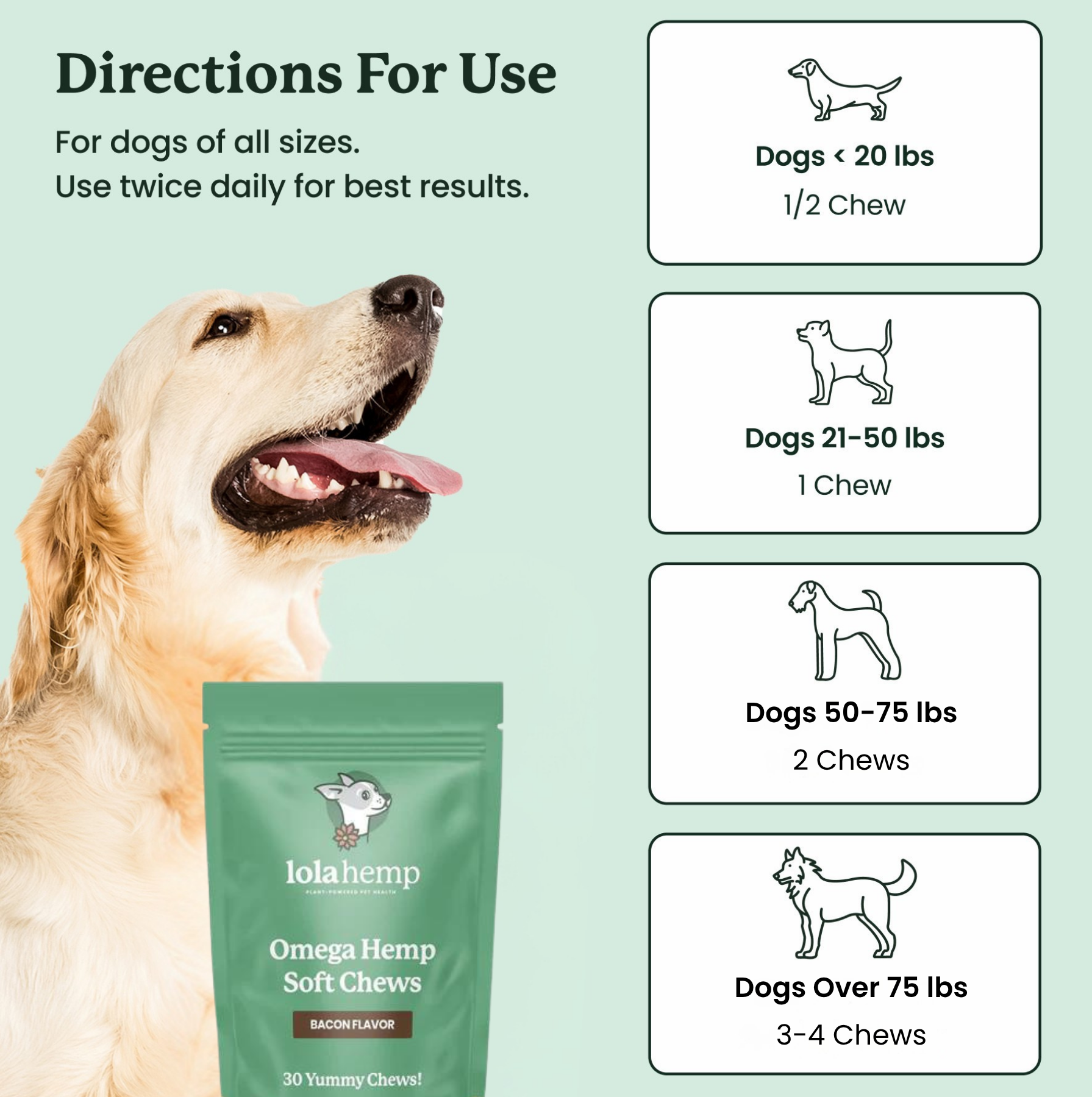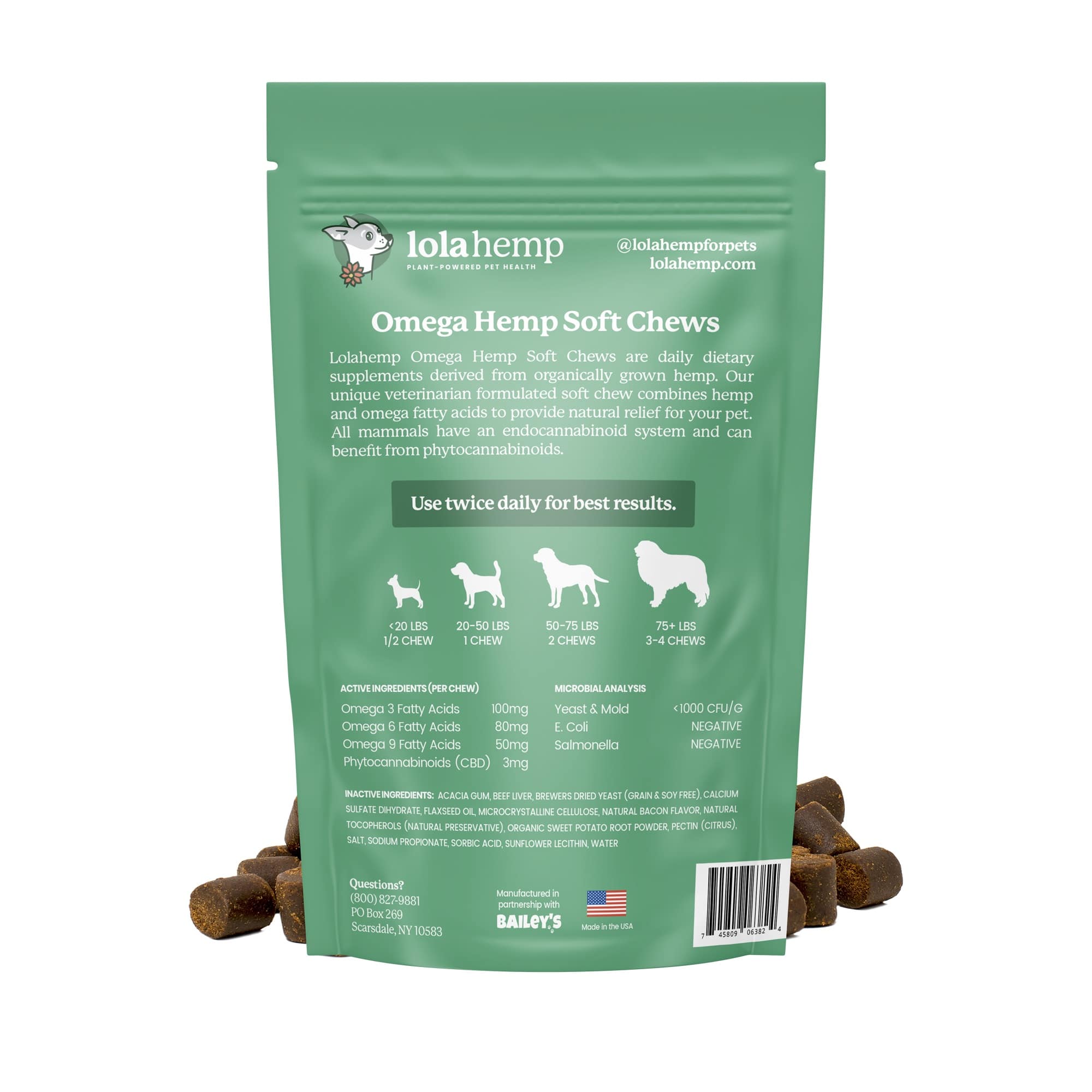Olive oil is rich in healthy fats, vitamins, and antioxidants, all of which can support canine health in a variety of ways. So, while olive oil can be beneficial to dogs in various ways, it's not necessarily the best option in all cases. The same can be said about many human foods for dogs.
You can give your dog olive oil in moderation, but the health benefits may not be as noticeable as you're hoping. The most prominent health benefit comes in the form of skin & coat health, with pet owners claiming visible benefits in terms of topical applications as well as dietary supplements. If you're looking to support your dog's mobility health, there are more reliable alternatives to olive oil.
This article explores some of the key considerations when giving your dog olive oil. Let's take a look.
- Is It Safe to Give Dogs a Little Olive Oil?
- Does Olive Oil Provide Significant Canine Health Benefits?
- What's The Safest Form of Olive Oil for Dogs?
- Conclusion
- Frequently Asked Questions About Olive Oil for Dogs
- 1. Is olive oil safe for dogs?
- 2. How much olive oil can I give my dog?
- 3. What kind of olive oil is best for dogs?
- 4. Can olive oil help my dog’s skin and coat?
- 5. Are there side effects of giving dogs too much olive oil?
- 6. Can olive oil be used on my dog’s skin directly?
- 7. Are there better alternatives than olive oil for dogs?
Is It Safe to Give Dogs a Little Olive Oil?
Olive oil is generally safe for dogs when used in moderation (dosage discussed below). It provides healthy fats and essential nutrients that can support their overall health, including skin and coat condition. However, it’s important to introduce it gradually and monitor your dog for any adverse reactions.
How Much Olive Oil Can Dogs Have?
For most dogs, a small amount is sufficient—typically 1 teaspoon for small dogs and up to 1 tablespoon for larger dogs. Olive oil can be given daily, but it's crucial to avoid overdoing it, as excessive amounts can lead to weight gain, diarrhea, or upset stomachs. Always consult your vet for specific recommendations based on your dog's size and health.
Does Olive Oil Provide Significant Canine Health Benefits?
Olive oil has potential health benefits for dogs, including improved skin and coat condition, better digestion, and anti-inflammatory effects. However, the degree to which these benefits occur can vary depending on the dog’s overall health, diet, and how much olive oil is incorporated. While it’s not a cure-all, many pet owners report seeing positive results with consistent use.
Most Prominent Health Benefit: Skin and Coat Health
One of the most noticeable benefits of olive oil for dogs is its ability to improve skin and coat health. The healthy fats and antioxidants in olive oil can help reduce dryness, flakiness, and irritation.
For the best chance to see skin & coat health benefits, add a small amount of olive oil to your dog's food, or apply it directly to their skin and coat for extra hydration and shine.

What's The Safest Form of Olive Oil for Dogs?
Extra virgin olive oil (EVOO) is the safest and most beneficial option for dogs. It is the least processed form, retaining the highest levels of antioxidants, vitamins, and healthy fats.
EVOO is cold-pressed and typically free from harmful chemicals and additives, making it a better choice than refined or processed alternatives.
EVOO can be found in most grocery stores, typically in the olive oil section, and is also available online. While there are no specific olive oils made exclusively for dogs, high-quality, organic EVOO from reputable brands ensures your pet gets the purest form of olive oil. Always avoid flavored or processed oils, as they may contain ingredients that are harmful to your dog.
Conclusion
Olive oil can be safely incorporated into your dog's daily regimen. That said, dietary olive oil may not be the most effective option for you to use. Your dog could benefit from other home remedies to help overall wellness.
In terms of topical application, olive oil could very well be an effective way to improve your dog's condition. All dogs will respond differently, however, and it's a good idea to talk with your veterinarian before starting your dog on any new supplements such as olive oil.
Frequently Asked Questions About Olive Oil for Dogs
1. Is olive oil safe for dogs?
Yes, olive oil is generally safe for dogs in moderation. It provides healthy fats and nutrients that support skin, coat, and digestive health.
2. How much olive oil can I give my dog?
Small dogs can have about 1 teaspoon per day, while larger dogs can have up to 1 tablespoon. Always start small and monitor for any stomach upset.
3. What kind of olive oil is best for dogs?
Extra virgin olive oil (EVOO) is the best choice since it's less processed and retains beneficial antioxidants and nutrients.
4. Can olive oil help my dog’s skin and coat?
Yes, olive oil’s healthy fats and antioxidants can improve skin hydration and coat shine when used topically or added to food in small amounts.
5. Are there side effects of giving dogs too much olive oil?
Too much olive oil can cause diarrhea, upset stomach, or weight gain. It’s important not to overdo it and consult your vet before adding it regularly.
6. Can olive oil be used on my dog’s skin directly?
Yes, applying a small amount topically can soothe dry or flaky skin, but avoid overuse to prevent greasiness or residue buildup.
7. Are there better alternatives than olive oil for dogs?
For mobility or targeted wellness support, other supplements like omega-rich fish oils or CBD oils formulated for dogs may be more effective.

